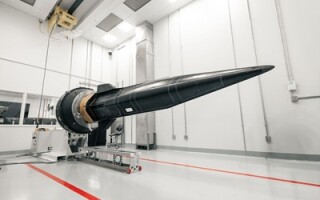Modular open systems critical to Army's future technological development: Army Secretary
NewsOctober 14, 2024
WASHINGTON, D.C. The U.S. Army is increasingly relying on modular open systems to keep soldiers one step ahead of adversaries in the race for technological supremacy, Army Secretary Christine Wormuth told attendees of the Association of the United States Army's (AUSA) annual meeting on Monday.
"America's adversaries are not going to sit back and let the United States set the pace," she said during her keynote address. "Despite being the world's best land fighting force, we need to start thinking and acting more like underdogs. We need to push ourselves to build a stronger culture of innovation inside the Army. We need to adopt a greater sense of urgency and accept greater risk."
Army leadership believes modular open systems may be key to that effort, Wormuth said.
"There is risk in testing new systems in challenging environments and getting soldiers hands-on experience with new technology in the field, but we do not have the luxury of time to wait for perfection," she said. "We must feel to learn by recognizing the urgency of this challenge. The Army was already being more iterative and flexible in developing and acquiring new systems, for example, by including modular open systems architectures in the new systems we're building. We are avoiding vendor lock and will be able to upgrade those systems more quickly and affordably."
Wormuth also pointed to a new software development approach at the C4ISR Center of Excellence at Aberdeen Proving Ground in Maryland, which she said is "eliminating bureaucracy and forcing us to use best practices already common in the commercial sector."
The Army is also working with Congress to develop "more agile funding mechanisms in the areas of unmanned aerial systems, counter-UAS and electronic warfare," she said.
"If this pilot approach helps us keep pace with rapidly improving technology without sacrificing congressional oversight, it could help build the trust we need for greater spending flexibility in the future," she said.





